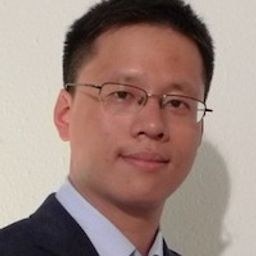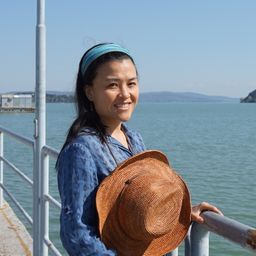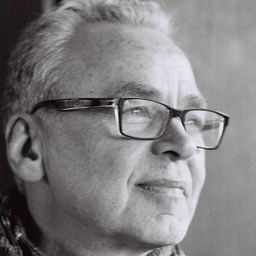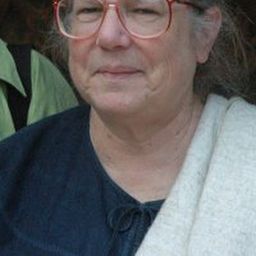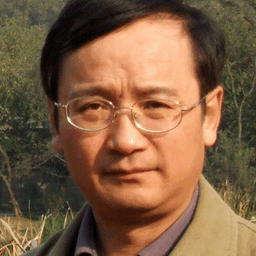Heritage Shifts in East Asia: Communication between Global Policies and Local Practices
My Session Status
With these issues in mind, we invite papers looking into the following themes:
•What are the routes and modes of transport by which notions such as heritage, preservation, museum or authenticity—that originally emerged from Europe—travel to East Asian countries such as China, Korea or Japan?
•What concepts and practices do such notions meet when they arrive and how do populations interact with them? How are they professionally translated and interpreted and popularly imagined and practised on the ground?
•Through what kinds of processes and practices is the global heritage system variously put into operation and transformed at national and local levels?
•What roles do international professional groups, including heritage experts and nature conservationists, play in shaping the activities of Asian heritage practitioners and managers—and vice versa?
•How are documents and decisions concerning heritage conservation made at international levels (e.g. World Heritage) transmitted to East Asia and how do local actors variously take up, negotiate, resist or ignore these in whole or part?
• In what ways may local heritage decision-makers enlist national and international agents in order to meet their own economic and political agendas?
•How do international tourists and global tour operators imagine and influence heritage tourism in East Asia, and how do those variously respond?
Instead of focusing on single-site case-studies from diverse national contexts, this session engages with East Asia as an important ground for testing the global dynamics of heritage discourse in relation to the intensified mobility of concepts, objects, media and human beings.
We welcome projects with inter-disciplinary approaches to deepen the insight of the complex picture of the heritage system in the era of cultural and economic globalization. By investigating the proposition that cultures are an attribute of human societies formed by transcultural relationships, our session will collectively strive to cast new light on heritage politics, memory, governance, and the complex and often contradictory association of power and culture.
Sub Sessions
Cultural heritage or heritage preservation in China has been a political tool for the authorities to reason the past and to glorify the present. The inter-influence of policies and cultural heritage with regard to cultural heritage tourism and preservation has been intensively and extensively discussed. However, the politics of preserving Chinese folk art as a form of intangible cultural heritage has been neglected in the English literature. Its differentiation from imperial/elite art in a...
This paper examines the official construction of Chinese traditional performing arts as an intangible cultural heritage (ICH) project, and interrogates the cultural heritage policies in light of the actual everyday practices of such traditional art forms. I argue that the official constructions of traditional performing arts utilize the ICH policy to reinforce a top-down re-interpretation of traditional cultures and detach cultural practices from their own everyday local settings. The purp...
In contemporary South Korea, cosmopolitanism and global status signify the most coveted markers of identity on a personal, institutional, and national scale. While one might presume such aspirations reflect the desire to transcend, or escape from the parochial conflicts of a divided nation, appropriations of global recognition in fact continue to figure highly into contested, ideologically opposed national histories, not only between the two Korean states but also within South Korea. For e...
In 2004, China officially signed UNESCO’s Convention for the Safeguarding of Intangible Cultural Heritage (ICH) and dedicated over 800 million RMB in state funds to an unprecedented survey of the nation’s intangible treasures, with the goal of gaining UNESCO recognition. The event sparked a nationwide race to identify, promote, and commodify China’s intangible cultural heritage for a national and global audience. As a result, an expansion of state interests over a vast array of cultural re...
In this ethnographic rather than theoretical paper, I intend to examine the cultural, economic, and political dynamics of a specific artistic genre, Tibetan Opera, within the People’s Republic of China since the 1980s up until the present day, and analyze the specific twist brought about by intangible cultural heritage policies and practices. Ache lhamo, often considered the emblem of Tibetan performing arts, was revived at the beginning of the 1980s, after over fifteen years of ...
When on May 4th, 2015, Japan’s Agency for Cultural Affairs announced that the “Sites of Japan’s Meiji Industrial Revolution,” twenty-three old factories, shipyards, and industrial facilities spread over the country, were recommended for designation as UNESCO World Heritage, it was in the attempt to attest the rapid and successful modernization of Japan in the late-nineteenth century, a transformation that in just a few decades made the nation a rival to Western industrialized countries. On...
Two Reinwardt Academy museology teachers recently presented a four-week workshop on participatory museum practices to a group of master’s students in museology at Hangzhou, China. The project was made possible thanks to collaboration between the Amsterdam University of the Arts and the Research Institute for Museology and Cultural Heritage of Zhejiang University. It was intended as an inquiry into the implications of a recent heritage and museum building “boom” in the People’s Republic, le...
This paper aims to map how the Silk Roads World Heritage listing has been utilized in diplomatic ways to construct both internally and externally a vision of China that facilitates and frames Chinese economic and political aspirations. The term “Silk Road” (Seidenstrassen) was coined by the German geographer Ferdinand von Rechthofen in 1877. Today this geographical term is endowed with a heritage connotation that serves to accommodate China’s economic, political, and security inte...
The countries of East Asia have been particularly involved in the constitution of the international tool for governing intangible cultural heritage. Once the Convention was ratified, a great number of applications from China, Korea, and Japan arrived at UNESCO. By the end of 2015, 25% of registered elements and 30% of pending files originated from these three countries. Obvious at the national and local levels, this craze resonates clearly from stakes related to specific contexts but it es...
Intangible Cultural Heritage (ICH)? What is that? Although the concept of ICH has been extensively discussed within UNESCO, the media, and state bodies since the 1990s, the meaning of the concept and the inherent global norms still remain elusive to many. Since the 2003 Convention on the Safeguarding of Intangible Cultural Heritage, the concept has entered the domestic realm and is further influenced by national heritage discourses and processes, especially within the ICH Convention’s memb...
In 1997, China established its first ecomuseum as a new heritage protection and management strategy in the rural sector. China has since experienced a wave of ecomuseum project development across the country, situated within a larger nation-wide museum construction boom and national heritage protection campaign. Ecomuseums found in southwest, and most recently created in eastern and northern China, add to the almost four thousand museums in China, which have risen from a mere three hundred...
Conflicts may arise when international standards of museological practice are applied in heritage preservation at the local level, engendering unique responses arising out of the cultural matrix. Locally developed museography may be an expression of concepts fundamentally linked to traditional methods of cultural transmission. The challenge is to discover common goals and negotiate common processes. In mainland Southeast Asia questions arise when addressing the issue of material conservati...
One of the peculiar features of contemporary discourse is to differentiate the past from the present, and make it as “a foreign country” to be cherished as a heritage for cultural consumption. How could the sense of place be narrated as part of the local people’s everyday life, related to the ongoing transformation of heritage sites? In what way could the Chinese sages from the ancient speak again, not about ideas of philosophy, but as a discourse to address the local and global concerns a...
